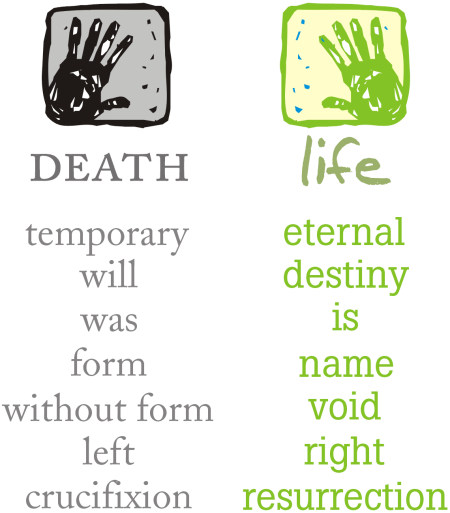Trouble follows you like crows, and ever oftener the worse…Why indeed should we welcome you, Master Stormcrow? Láthspell I name you, Ill-news; and ill news is an ill guest they say. Grima Wormtongue
Tolkien was one who understood that destiny lives in a name. Perhaps not surprising for a professor of language, a philologist, a man who was obsessed with words.
In the movie version of The Lord of the Rings, Theoden is possessed by Sauruman and bound to do his bidding. In the book, something much more subtle and far more profound is occurring. It is the power of Grima’s tongue and his understanding that naming produces destiny that is altering Theoden’s will. You can see it in the quote above, where he is trying to bring Gandalf to no thing, as we have discussed before this.
In the previous post I stated that the whole Bible was a book of prophetic words. By that I don’t mean fulfilled prophecy. Fulfilled prophecy is history; history is death. I mean that every word in the Bible speaks of events that are yet to happen or are currently in motion. With that in mind, there is one specific scripture I want us to look at:
Out of the ground the LORD God formed every beast of the field and every bird of the sky, and brought them to the man to see what he would call them; and whatever the man called a living creature, that was its name.
A taxonomist classifies by name; he uses a name scheme to define relationship. But man is not meant to be a taxonomist; he is meant to be, what I shall call, a taxometre. It is his role, not to observe destiny, but to create destiny. Out of the scripture quoted above, we can then state the following:
God forms; Man names.
This is perhaps the single most important concept for you to grasp if you want to enter into the Kingdom of God, because it is this structure that allows Kingdom to come into being. The framework of the universe was made to allow this yoking of purpose between God and men:
In the beginning God created the heavens and the earth and the earth was without form and void (empty)…
Upon the expanding canvas that would hold that which is created, a process was instituted. God would mould the form (the earth was without form), and man would fill that form with purpose and destiny (the earth was void or empty). Yet the serpent is the most subtle creature upon the earth, and through subtle reductionism this union of purpose is severed, and man does not comprehend his role. The precedent set by Adam becomes antecedent and naming becomes an act of history rather than a prophetic statement which lays a threshold into Kingdom. The power of naming is then devalued into a gross form of possession – he who has the most toys when he dies, wins. It’s like the Junklady in Labyrinth, who uses all Sarah’s stuff to distract her away from finding her baby brother:
You like your little bunny rabbit. Yes, yes, yes! Oh, and there’s Betsy Boo. Yes, yes, yes! What else have we got? It’s a pencil box. Got lots of pencils! Here’s your panda slippers. You like your panda slippers! You never wanted them thrown away, did you?
Scripturally, we are told that that which is seen is temporary, and that which is unseen is eternal. Think of Christ’s death and resurrection. The world turned out to see him die, but no one saw him rise again. This is because his death was temporary, but his resurrection is eternal. In like manner, God controls form, that which is seen, that which is death. Man’s job is to fill that form. That which fills is unseen; that which fills is eternal. In an earlier post we spoke of entering the free will of God and learning to predestine. Will is form; to predestine is to fill.
Think of it this way. Forming creates boundaries. Filling establishes a destiny within the boundaries. But boundaries are not established to remain. Isaiah says:
Enlarge the place of your tent; stretch out the curtains of your dwellings, spare not; Lengthen your cords and strengthen your pegs.
When the need for a specific boundary is over, that boundary passes away and a new boundary is established. Every boundary is temporary. The destiny that is named must be eternal, for it must continue to work to fill boundaries that expand forever.
Let’s use the format of the handed list from the previous post and expand our understanding:
One of the Ten Commandments is a warning that man is not to monkey about with form (thou shalt make no graven image). The thought here isn’t a ban on statuary, but rather a reiteration that form is the work of God, not of man; God sets boundaries. Genesis tells us that God formed man; therefore, the boundaries God set at that time were not meant to be eternal, but a framework that would pass away.

